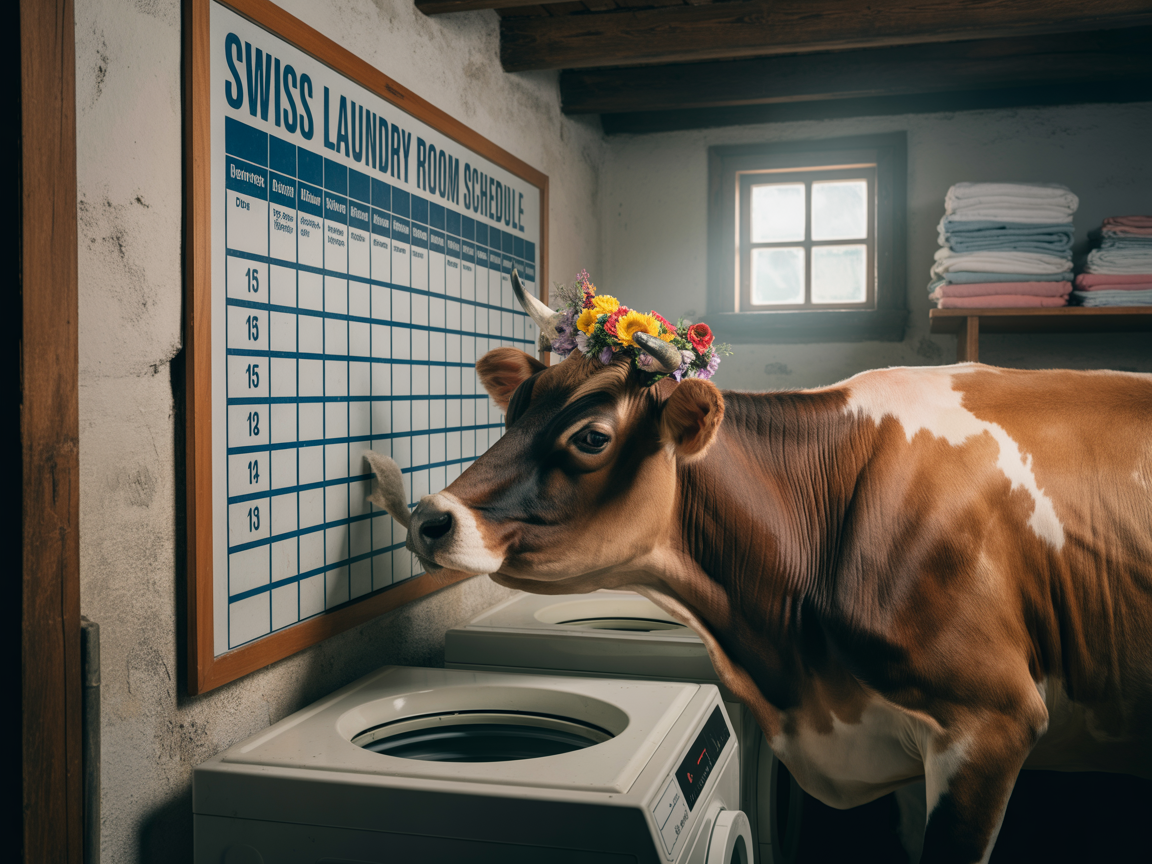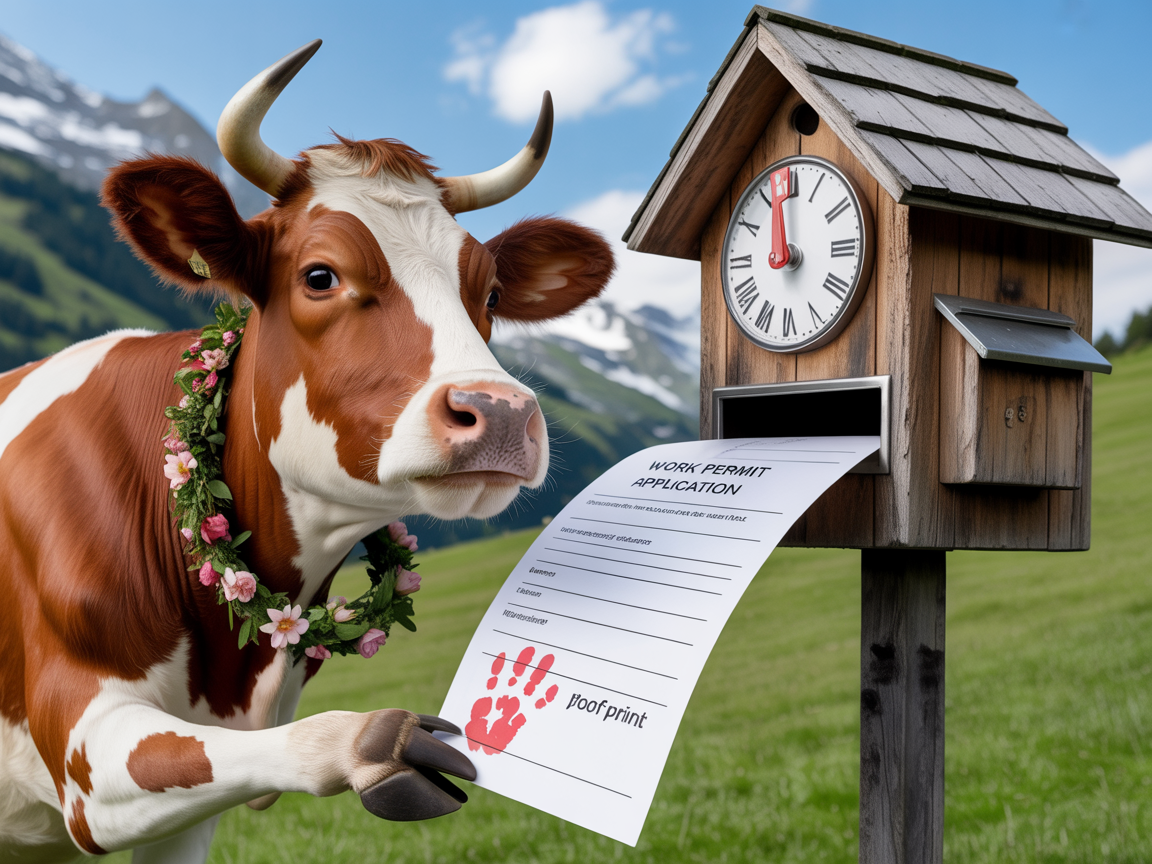Driving in Switzerland: Getting Your License and Understanding Road Rules
Experience the Swiss roads like a local! Driving in Switzerland can be a breathtaking experience, with well-maintained roads winding through stunning alpine scenery and picturesque towns. However, as a new expat Switzerland, it’s crucial to understand the requirements for your driving license Switzerland expat, familiarize yourself with Swiss road rules, and know the process if you’re considering importing car Switzerland.
This comprehensive guide will help you navigate the roads legally and safely, ensuring your driving experience in Switzerland is both enjoyable and compliant with local regulations.
🚗 Your Foreign Driving License in Switzerland: The First 12 Months
Upon taking up official residence in Switzerland, you can generally use your valid foreign driving license for 12 months - but there are important conditions to understand.
📋 Basic Requirements
| Requirement | Details | Important Notes |
|---|---|---|
| 🆔 Valid License | Must be current and national | No international learner’s permits |
| 🌐 Language Requirements | Latin script or official Swiss languages preferred | German, French, Italian, or English accepted |
| 📄 Translation Needed | If not in accepted languages | Must carry IDP or official translation |
| ⏰ Time Limit | Maximum 12 months from residence date | Strict enforcement after deadline |
🔍 Language and Documentation Requirements
- ✅ Accepted Languages: German, French, Italian, English, or Latin script
- 📝 Translation Required: If your license is in other scripts (Arabic, Cyrillic, etc.)
- 🌍 International Driving Permit (IDP): Must accompany your national license
- ⚖️ Official Translation: Alternative to IDP from certified translator
🔄 Exchanging for a Swiss Driving License: The Complete Process
⏰ Who Needs to Exchange and When?
All residents holding a foreign driving license must exchange it for a Swiss one within 12 months of taking up residence. Continuing to drive on your foreign license after this period is illegal and can result in significant penalties.
📝 The Exchange Process: Step-by-Step Guide
🏢 Application Location
Visit your local cantonal road traffic office:
- German: Strassenverkehrsamt
- French: Service des Automobiles et de la Navigation
- Italian: Ufficio della circolazione
📄 Required Documents Checklist
| Document | Details | Validity |
|---|---|---|
| 📋 Application Form | Completed cantonal form | Available at office |
| 🆔 Original License | Your foreign driving license | Must be current |
| 👁️ Eye Test Certificate | From Swiss-registered optician/doctor | Valid 24 months |
| 📸 Passport Photo | Recent color photograph | Standard passport size |
| 🏠 Residence Permit | Swiss Ausländerausweis | Current permit |
| 📖 ID Copy | Passport or national ID | Certified copy |
| 💰 Fee | Varies by canton | CHF 100-200 typically |
💡 Pro Tips for Success
- ⏰ Start Early: Begin process 2-3 months before your 12-month deadline
- 📞 Call Ahead: Verify specific requirements with your cantonal office
- 📅 Book Appointment: Many offices require advance booking
- 💼 Bring Originals: Always bring original documents, not just copies
🎯 Direct Exchange vs. Control Drive (Kontrollfahrt)
Understanding whether you need additional testing depends on your license origin:
✅ Direct Exchange (No Test Required)
Eligible Countries: EU/EFTA nations plus select countries with reciprocal agreements
| Region | Countries | Requirements |
|---|---|---|
| 🇪🇺 EU/EFTA | All member states | Standard document exchange |
| 🇺🇸 North America | USA, Canada | Verify current agreements |
| 🇦🇺 Oceania | Australia, New Zealand | Direct exchange available |
| 🇯🇵 Asia | Japan, Israel | Check latest bilateral agreements |
🚗 Control Drive (Kontrollfahrt) - When Required
If your license is from a country not on the direct exchange list:
📋 What to Expect
- 🎯 Purpose: Assessment of Swiss driving standards compliance
- ⏰ Duration: Typically 30-45 minutes
- 🛣️ Route: Local roads including various traffic situations
- 👨🏫 Examiner: Official from cantonal road traffic office
⚠️ Critical Success Factors
- 📚 Know Swiss Rules: Study traffic regulations thoroughly
- 🚦 Priority Rules: Master right-of-way regulations
- 🚲 Cyclist Awareness: Demonstrate proper sharing of road space
- 🚶♂️ Pedestrian Priority: Show understanding of crosswalk rules
🎓 Preparation Strategy
- 👨🏫 Take Lessons: 2-3 lessons with Swiss instructor highly recommended
- 📖 Study Materials: Use official Swiss driving theory materials
- 🗣️ Language Prep: Ensure you understand examiner’s instructions
- ⚠️ High Stakes: Usually only one attempt - failure may require starting from scratch
🚦 Essential Swiss Road Rules Every Expat Driver Must Know
Swiss roads are among the safest in the world, but rules are strictly enforced with significant financial penalties for violations.
🏎️ Speed Limits: Know Your Zones
🛣️ Speed Limit Hierarchy
| Road Type | Speed Limit | Visual Cues | Common Reductions |
|---|---|---|---|
| 🛣️ Motorways | 120 km/h | Green signs with highway symbol | 100 km/h, 80 km/h zones |
| 🛤️ Expressways | 100 km/h | Green signs, limited access | May have intersections |
| 🌄 Outside Towns | 80 km/h | Main roads, country routes | Construction zones |
| 🏘️ Built-up Areas | 50 km/h | Town/city limits signs | Zone 30, Zone 20 areas |
⚠️ Special Speed Considerations
- 📷 Speed Cameras: Extremely common throughout Switzerland
- 🏗️ Construction Zones: Temporary limits strictly enforced
- 🌧️ Weather Conditions: Recommended speed reductions in poor weather
- 💰 Penalty Costs: Fines escalate quickly - even small infractions are expensive
🎫 The Vignette: Your Motorway Access Pass
🛣️ Vignette Requirements
To use Swiss motorways and expressways, every vehicle must display an annual toll sticker.
| Aspect | Details | Cost & Validity |
|---|---|---|
| 🚗 Coverage | Cars, motorcycles, trailers, caravans | CHF 40 annually |
| 📅 Validity Period | December 1st (previous year) to January 31st (following year) | 14 months total |
| 🛒 Purchase Locations | Border crossings, post offices, gas stations, online | Available year-round |
| 💸 Penalty | CHF 200 fine plus CHF 40 vignette cost | Strictly enforced |
💡 Vignette Pro Tips
- 🏠 Before Arrival: Purchase online before entering Switzerland
- 🚗 Proper Placement: Must be affixed to windshield, not transferable
- 📱 Digital Options: Available but vehicle-specific registration required
🚦 Priority Rules: Mastering Swiss Right-of-Way
Understanding priority rules is crucial for safe driving and passing the Kontrollfahrt.
➡️ Fundamental Priority Principles
| Situation | Priority Rule | Action Required |
|---|---|---|
| 🔄 Unsigned Intersections | Priority to the right | Yield to traffic from right |
| 🎠 Roundabouts | Traffic in circle | Yield before entering |
| 🚊 Trams | Trams have priority | Even when coming from left |
| 🚶♂️ Pedestrian Crossings | Absolute pedestrian priority | Stop when intention shown |
| 🚑 Emergency Vehicles | Always yield | Move aside immediately |
🚌 Special Case: PostBuses on Mountain Roads
- 🎺 Three-tone Horn: Distinctive warning signal
- ⛰️ Narrow Roads: Often have right-of-way priority
- 🚛 Large Vehicles: Give extra space and time
🍷 Alcohol Limits and Zero Tolerance Policies
Switzerland enforces strict drinking and driving laws with severe penalties.
📊 Blood Alcohol Limits
| Driver Category | BAC Limit | Penalties |
|---|---|---|
| 👨💼 Regular Drivers | 0.05% (0.5‰) | Fines, license suspension |
| 🚗 New Drivers | 0.01% (near zero) | First 3 years after license |
| 🚛 Professional Drivers | 0.01% (near zero) | Trucks, buses, taxis |
| 🚨 Over Limit | Criminal charges | Court proceedings, prison possible |
⚠️ Enforcement and Consequences
- 🚔 Random Checks: Police conduct regular breath tests
- 💰 Financial Impact: Fines start at several hundred CHF
- 📄 License Impact: Suspension periods can be lengthy
- 🏛️ Legal Consequences: Criminal record for serious violations
💡 Essential Equipment and Safety Requirements
🔦 Mandatory Equipment
| Requirement | Details | When Required |
|---|---|---|
| 💡 Headlights | Dipped beams or DRL | All times, day and night |
| 🔗 Seatbelts | All occupants | Front and rear seats |
| 👶 Child Seats | Under 12 years, under 150cm | Approved safety seats only |
| ❄️ Winter Equipment | Seasonal requirements | October to April recommended |
🌨️ Winter Driving Essentials
🛞 Winter Tires
- 📅 Recommended Period: October to April
- ⚖️ Legal Responsibility: Driver liable for road-appropriate equipment
- 🚗 Accident Liability: Summer tires in winter conditions = fault assignment
- 🔍 Identification: M+S marking or mountain/snowflake symbol
⛓️ Snow Chains
- 🏔️ Mountain Pass Requirement: Mandatory on designated routes
- 🪧 Signage: Blue circular signs indicate chain requirements
- 🎒 Recommendation: Carry chains for winter mountain travel
- 🛠️ Practice: Learn proper installation before needed
🅿️ Parking in Switzerland: Zones and Regulations
Understanding parking zones prevents costly fines and ensures legal compliance.
🎨 Color-Coded Parking System
| Zone Color | Purpose | Time Limits | Payment Method |
|---|---|---|---|
| 🔵 Blue Zones | Short-term parking | 1-1.5 hours typically | Blue parking disc |
| ⚪ White Zones | General parking | Variable limits | Free or pay-and-display |
| 🟡 Yellow Zones | Restricted access | Private/commercial use | Authorization required |
| 🔴 Red Zones | No parking | Prohibited areas | Immediate towing risk |
🕐 Blue Zone Strategy
- ⏰ Disc Setting: Set to arrival time (next 30-minute mark)
- 🏠 Resident Permits: Annual permits available for local zones
- 📍 Purchase Locations: Police stations, garages, some shops
- ⚠️ Enforcement: Regular patrols with significant fines
💰 Parking Fine Prevention
- 📖 Read Signs: Always check local parking regulations
- ⏰ Time Awareness: Set phone reminders for time limits
- 💳 Payment Proof: Keep receipts visible in pay zones
- 🚗 Vehicle Position: Ensure proper spacing and legal placement
🚛 Importing Your Car to Switzerland: Complete Process Guide
Bringing your vehicle when relocating to Switzerland involves multiple steps and requirements.
📦 Duty-Free Import as Household Goods
✅ Eligibility Requirements
- ⏰ Ownership Duration: Minimum 6 months abroad
- 🏠 Residence Change: Official relocation to Switzerland
- 📋 Declaration: Must be included in household goods import
- ⏳ Timing: Usually within one year of residence establishment
📄 Required Documentation
| Document Type | Purpose | Source |
|---|---|---|
| 📋 Form 18.44 | Personal property clearance application | Swiss Customs |
| 🚗 Registration Documents | Proof of ownership and specifications | Original vehicle papers |
| 📅 Ownership Proof | Demonstrate 6-month minimum ownership | Insurance records, bills |
| 🌡️ Emissions Certificate | Environmental compliance | Vehicle manufacturer/dealer |
🔧 Swiss Technical Inspection (MFK): The Crucial Step
Before registration, every imported vehicle must pass Switzerland’s stringent technical inspection.
🏢 MFK Process Overview
- 📍 Location: Cantonal road traffic office testing facility
- ⏰ Duration: Typically 1-2 hours
- 🔍 Assessment: Comprehensive safety and emissions check
- 💰 Cost: CHF 100-200 plus any required modifications
🎯 Common MFK Requirements
| System | Swiss Standards | Potential Modifications |
|---|---|---|
| 💡 Lighting | EU/Swiss specifications | Headlight adjustment, amber indicators |
| 🌍 Emissions | Euro standards compliance | Catalytic converter upgrades |
| 🔧 Safety Equipment | Swiss-approved components | First aid kit, warning triangle |
| 📏 Measurements | Weight and dimension limits | No modifications if compliant |
⚠️ Modification Costs
- 💰 Budget Range: CHF 500-3,000+ depending on requirements
- 🔧 Common Needs: Headlight conversion, emissions updates
- ⏰ Processing Time: 1-4 weeks depending on complexity
- ❌ Failure Risk: Some vehicles cannot be economically modified
🛡️ Mandatory Swiss Car Insurance
No vehicle can be registered without proper Swiss insurance coverage.
📋 Insurance Requirements
| Coverage Type | Requirement Level | Typical Cost |
|---|---|---|
| 🛡️ Third-Party Liability | Mandatory minimum | CHF 600-1,200 annually |
| 🚗 Comprehensive | Optional but recommended | CHF 1,200-2,500 annually |
| 🔧 Additional Coverage | Breakdown, legal protection | CHF 200-500 annually |
💡 Insurance Shopping Strategy
- 🔍 Compare Quotes: Use comparison platforms like Expat Savvy (expat-savvy.ch)
- 📋 Coverage Assessment: Consider comprehensive for newer vehicles
- 💰 Deductible Options: Higher deductibles reduce premiums
- 🎯 Expat-Friendly: Some insurers specialize in expat coverage
📋 Registration and Swiss License Plates
Final step in the vehicle import process.
🏢 Registration Process
- 📍 Location: Same cantonal office as MFK
- 📄 Documents: MFK certificate, insurance proof, residence permit
- 💰 Fees: CHF 50-150 registration fee
- 🚗 Plates: Cantonal-specific design and numbering
💸 Ongoing Costs to Consider
| Cost Category | Frequency | Typical Amount |
|---|---|---|
| 🛣️ Road Tax | Annual | CHF 200-800 (varies by canton) |
| 🎫 Vignette | Annual | CHF 40 |
| 🔧 MFK Inspection | Every 3 years | CHF 100-200 |
| 🛡️ Insurance | Annual | CHF 800-2,500 |
🌟 Expert Tips for Safe and Pleasant Driving in Switzerland
🏔️ Mountain Driving Mastery
⛰️ Alpine Road Techniques
- ⚙️ Gear Selection: Use lower gears for steep descents
- 🚛 Brake Management: Engine braking prevents brake overheating
- 📏 Narrow Roads: Understand priority rules for tight sections
- 🚌 PostBus Encounters: Always yield to these priority vehicles
❄️ Winter Conditions
- 🌡️ Temperature Awareness: Black ice forms around 0°C
- 👀 Visibility: Keep lights clean, carry extra washer fluid
- 🛞 Tire Pressure: Cold weather reduces pressure
- ⛓️ Chain Installation: Practice before you need them
🏙️ Urban Driving Excellence
🚲 Sharing Roads with Cyclists
- 👀 Constant Awareness: Check mirrors and blind spots
- 📏 Safe Distance: Minimum 1.5-meter passing clearance
- 🚦 Traffic Light Priority: Cyclists often have dedicated signals
- 🚗 Door Zone: Check before opening car doors
🚊 Tram Interaction
- ⚡ Priority Rules: Trams almost always have right-of-way
- 🚧 Track Awareness: Don’t block tram lines
- 🚏 Stop Zones: Don’t obstruct passenger boarding areas
- 📱 Signal Attention: Watch for tram warning signals
💰 Cost-Effective Driving Strategies
⛽ Fuel Efficiency
- 🗺️ Route Planning: Use GPS to avoid traffic delays
- ⏰ Off-Peak Travel: Avoid rush hour congestion
- 🚗 Maintenance: Regular service maintains efficiency
- 🛣️ Highway vs. Local: Compare route costs including tolls
🅿️ Parking Economics
- 🚇 Park & Ride: Use peripheral parking with public transport
- 📱 Apps: Use parking apps to find and pay for spaces
- 🏠 Residential Permits: Often cheaper than daily rates
- 🕐 Time Management: Avoid overtime penalties
🚊 Alternative Transportation Considerations
🚇 Public Transport Excellence
Switzerland’s public transport system is world-renowned for efficiency and coverage.
💰 Cost Comparison: Car vs. Public Transport
| Expense Category | Annual Car Costs | Public Transport |
|---|---|---|
| 🚗 Vehicle Costs | CHF 8,000-15,000 | - |
| 🎫 Transport Passes | - | CHF 3,860 (GA Pass) |
| 🅿️ Parking | CHF 1,200-3,600 | - |
| ⛽ Fuel | CHF 1,500-2,500 | - |
| 🔧 Maintenance | CHF 800-1,500 | - |
🌟 Hybrid Approach Benefits
- 🚗 Car Sharing: Mobility, ShareNow for occasional use
- 🚲 E-Bikes: Combine with public transport
- 🚂 Long Distance: Train for intercity travel
- 🏙️ Urban: Public transport for daily commuting
❓ Comprehensive FAQ: Driving in Switzerland for Expats
Q1: What happens if I don’t exchange my foreign driving license within 12 months?
A: After 12 months of residence, your foreign driving license becomes invalid for driving in Switzerland. If caught driving with an expired foreign license, you’ll face significant fines and be treated as driving without a license. You’ll then need to complete the full Swiss licensing process, including theory and practical tests, which can be time-consuming and expensive.
Q2: What exactly is a “Kontrollfahrt” and how can I prepare?
A: A Kontrollfahrt is a practical driving assessment (not a full test) for holders of non-EU/EFTA licenses. It typically lasts 30-45 minutes and assesses your ability to drive safely according to Swiss standards. To prepare:
- Take 2-3 lessons with a Swiss driving instructor
- Study Swiss traffic rules thoroughly
- Practice priority rules, especially “priority to the right”
- Familiarize yourself with cyclist and pedestrian priority rules
- Ensure you can understand the examiner’s instructions in the local language
Q3: How common and expensive are traffic fines in Switzerland?
A: Traffic fines are very common and expensive in Switzerland. Speed cameras are everywhere, including mobile units and in tunnels. Even minor infractions can cost CHF 100-300, while serious speeding violations can result in court proceedings and fines of thousands of francs. Switzerland operates on a “day fine” system for serious violations, where penalties are based on your income.
Q4: Is it worth importing my car to Switzerland?
A: This depends on several factors:
- Age and Value: Newer, valuable cars may be worth importing
- Modification Costs: Budget CHF 500-3,000+ for Swiss compliance
- Documentation: Ensure you have all required paperwork
- Alternative: Many expats find buying locally more convenient Consider consulting ReloFinder.ch specialists who can provide personalized advice based on your specific vehicle and situation.
Q5: Do I need winter tires in Switzerland?
A: While not legally mandated for specific dates, drivers are legally responsible for ensuring their vehicle is roadworthy for conditions. Using summer tires in winter conditions can result in:
- Fines if you cause an accident
- Full liability for damages
- Insurance complications Winter tires (marked M+S or with mountain/snowflake symbol) are practically essential from October to April.
Q6: Can I use my foreign car insurance temporarily after moving?
A: Generally no. Once you establish Swiss residence and register your vehicle, you must have Swiss car insurance from an authorized insurer. Your foreign insurance might provide very short-term coverage during the transition, but this must be verified with your insurer. Use platforms like Expat Savvy (expat-savvy.ch) to quickly compare Swiss car insurance options.
Q7: What should I do if I receive a traffic fine in Switzerland?
A: Swiss traffic fines should be taken seriously:
- Pay Promptly: Fines increase with delays
- Contest if Warranted: You have rights to appeal
- Language Assistance: Get help understanding the fine if needed
- Legal Advice: For serious violations, consider legal consultation Never ignore Swiss traffic fines, as they can escalate to international collection procedures.
🎯 Conclusion: Your Journey to Confident Swiss Driving
Driving in Switzerland offers unparalleled scenic beauty and access to remote areas that public transport cannot reach. By understanding the driving license Switzerland expat requirements, mastering Swiss road rules, and carefully considering the implications of importing car Switzerland, you can enjoy the roads safely and legally.
🚀 Your Action Plan
- 📅 Timeline Planning: Start license exchange process early
- 📚 Education: Study Swiss traffic rules thoroughly
- 🔍 Research: Compare costs of importing vs. buying locally
- 🛡️ Insurance: Shop for competitive Swiss car insurance
- 🤝 Professional Support: Consider relocation specialists for guidance
🌟 Professional Support Available
For comprehensive support with your Swiss relocation, including understanding driving requirements and other essential processes, ReloFinder.ch connects you with experienced specialists. Companies like Prime Relocation offer orientation assistance that can include guidance on driving requirements, making your transition to Swiss roads smoother and more confident.
Ready to hit the Swiss roads? Start your licensing journey today and discover the freedom of driving through one of the world’s most beautiful countries!
Disclaimer: Driving laws, licensing procedures, and import regulations can change. This information is for general guidance. Always consult official cantonal road traffic offices (Strassenverkehrsamt), the Federal Roads Office (FEDRO/ASTRA), and Swiss Customs for the most current and specific advice.





